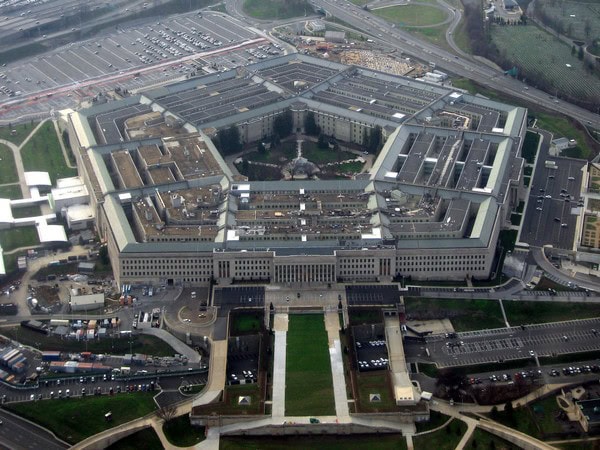Washington: Pentagon officials were surprised Tuesday after President Donald Trump vowed at his summit with the North’s leader Kim Jong Un to cancel “provocative” joint military drills with South Korea.
Following the unprecedented meeting in Singapore, Trump stunned observers when he said continuing the exercises routinely held between the US and South Korea would be “inappropriate” while Washington fleshes out a comprehensive deal with Pyongyang.
“We will be stopping the war games, which will save us a tremendous amount of money, unless and until we see the future negotiation is not going along like it should,” Trump said.
“Plus, I think it’s very provocative,” he noted, adding that “at some point” he wanted to withdraw US troops from the South.
Hours after Trump’s declaration, the Pentagon on Tuesday afternoon insisted that US Defense Secretary Jim Mattis had not been blindsided by Trump.
“He was not surprised, he was consulted,” Mattis’s spokeswoman Dana White told reporters.
“Conversations have been robust, there were no surprises.”
In a statement, White later said the Pentagon “welcomes the positive news coming out of the summit and fully supports the ongoing, diplomatically led efforts with” North Korea.
But US officials told AFP they were taken aback by the news, and Pentagon personnel spent the morning in meetings discussing what could amount to an epic shift in the US military’s posture in South Korea.
The drills, which date back decades, are an integral component of the Pentagon’s boast that its troops are always ready to “fight tonight” on the Korean peninsula.
The exercises allow US and South Korean forces to practice mobilizing soldiers in the event of conflict, and to run computer simulations to improve coordination between the two militaries.
US Forces Korea (USFK), which comprises about 28,500 troops permanently based in South Korea, received no fresh guidance on upcoming joint training exercises, including so-called Ulchi Freedom Guardian scheduled for later this year.
Colonel Rob Manning, another spokesman, said: “We are going to be aligned with the president,” while noting that the readiness of US forces would remain “paramount.”
– ‘Troubling’ concession –
Trump said he wanted to remove the US military presence from South Korea, though he provided no timeline.
“I want to bring our soldiers back home,” he said. “That’s not part of the equation right now. At some point, I hope it will be, but not right now.”
Mattis has repeatedly stressed that any reduction in troops would be a decision that only Washington and Seoul could address.
Only hours before the summit, Mattis told Pentagon reporters that, as far as he knew, the issue of US troops in South Korea would not be part of any discussion in Singapore.
Stephen Pomper, US program director at the Crisis Group, said Trump had sown confusion by announcing the end of drills without first checking with the South Koreans.
“Creating friction with a key ally with an issue like that may have been a mistake, frankly,” he told AFP.
And what “exactly was the president committing to?” he added. “Was he committing to end all military exercises or was he committing to end just the most provocative ones?”
Exercises with South Korea cover a range of eventualities, including drills with nuclear capable bombers.
Republican Senator Marco Rubio said he was “uncomfortable” with the suspension of military drills, especially “if this becomes permanent in exchange for nothing.”
But Daniel Davis, a retired army lieutenant colonel and fellow at the Defense Priorities military think tank, said suspending the drills would have no short term impact on US and South Korean military readiness.
“The US armed forces will in no way stop individual and collective training, the South Korean military will continue to train and prepare as they always have,” he told AFP, adding that institutional knowledge from years of drills would be retained.
Richard Haass, president of the Council on Foreign Relations, said it was “troubling” that Trump had agreed to suspend joint drills without making any reference to North Korea dialing back its conventional military threat.
“The Singapore summit statement is essentially aspirational: no definitions of denuclearization, no timelines, no details as to verification,” Haass said on Twitter.
“What is most troubling about all this is that the US gave up something tangible, namely, US-RoK military exercises, in exchange,” he added, using the abbreviation for South Korea’s official name.
Still, he credited the summit for starting a diplomatic process between North Korea and the United States.
Agence France-Presse

